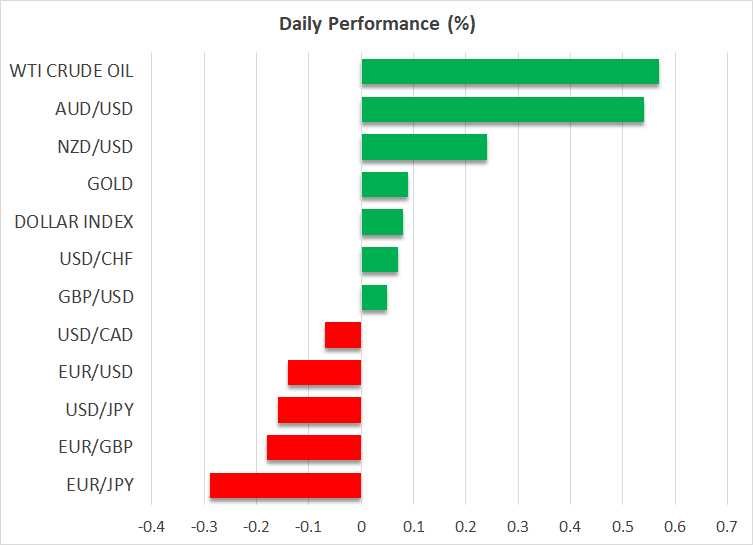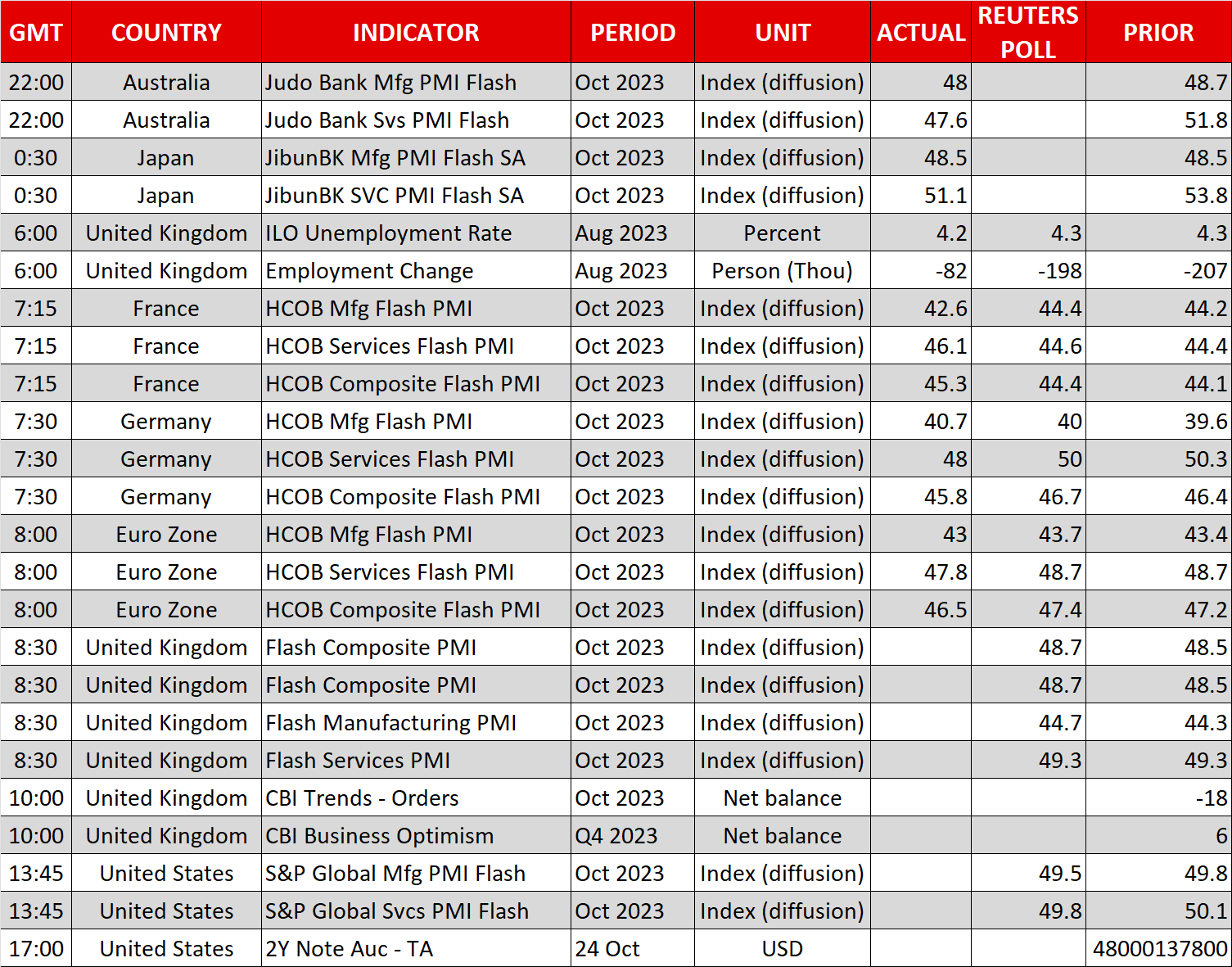- Dollar follows US yields lower after rejection from 5% region
- But gold and yen cannot take advantage of this correction
- Euro rebound cut short by disappointing business surveys

Retreat in yields slams dollar
Global markets breathed a sigh of relief yesterday, as the furious rally in US yields finally lost some steam. The yield on the 10-year Treasury briefly topped the 5.0% region - sending shivers down the spine of riskier assets such as equities - but got rejected and eventually closed the session much lower around 4.85%.
It seems that US debt with annual returns of 5% was enough to entice investors back into the bond market, and some gloomy economic commentary from two famous investors added fuel to the buying spree. Billionaire fund manager Bill Ackman tweeted that his fund had exited a trade betting on higher yields, while PIMCO co-founder Bill Gross warned of a US recession hitting this quarter.
Bonds are considered safe assets that perform well in recessionary environments, so these warnings helped sparked some demand, dragging yields back down. With yields on the retreat, the US dollar got hammered as its interest rate advantage was eroded away, pushing the dollar index to its lowest levels in a month.
Now the question is whether this is simply a correction in a broader uptrend for yields or whether yesterday marked the blow-off top in this rally. While the Treasury continues to flood the markets with newly-issued debt to finance its gaping budget deficits, the economic outlook is also turning darker. Hence, it’s a classic battle between supply and demand for bonds, and incoming data will probably decide which force gains the upper hand.
Stocks stabilize, gold and yen not impressed
The drop in yields came as music to the ears of stock markets. The Nasdaq erased a heavy decline to close 0.3% higher instead, as falling yields made bonds less attractive to buy, pushing investors towards riskier plays. Cryptocurrencies shined bright, with Bitcoin rising 13% so far this week amid bets of an imminent regulatory breakthrough.
Gold did not join the party. The yellow metal has been unable to record any gains this week despite the pullback in real yields and the dollar. Gold’s inability to rally despite these positive developments is a signal that safe haven demand has started to wane, as markets learn to live with tensions in the Middle East.
In similar fashion, the Japanese yen struggled to advance against the dollar even amid the retreat in US yields and oil prices. Another bond-buying operation by the Bank of Japan to curb the rise in local yields might have been the culprit behind the yen’s sluggishness.
Euro takes a hit after PMI data
Finally, the euro was the biggest beneficiary from the retreat in the dollar yesterday. The single currency staged an impressive rebound, with some help from falling oil prices as well, but the recovery was cut short on Tuesday following some disappointing business surveys.
The latest round of PMI surveys warned the Eurozone economy is going “from bad to worse” as new business orders continue to decline, bringing corporate hiring to a standstill. The data reinforces concerns that the euro area is headed for a mild recession, which in turn raises the question of how long the ECB can keep interest rates at such high levels.
In this sense, the outlook for the euro appears grim. The single currency is plagued by deteriorating economic fundamentals, the risk that ECB rate cuts might come sooner than markets anticipate next year, and elevated oil prices putting pressure on the Eurozone’s terms of trade. Hence, any euro rallies might be short-lived.
Over in the UK, business surveys painted a similar gloomy picture, but were not so apocalyptic. The focus now shifts to the US surveys later today.
